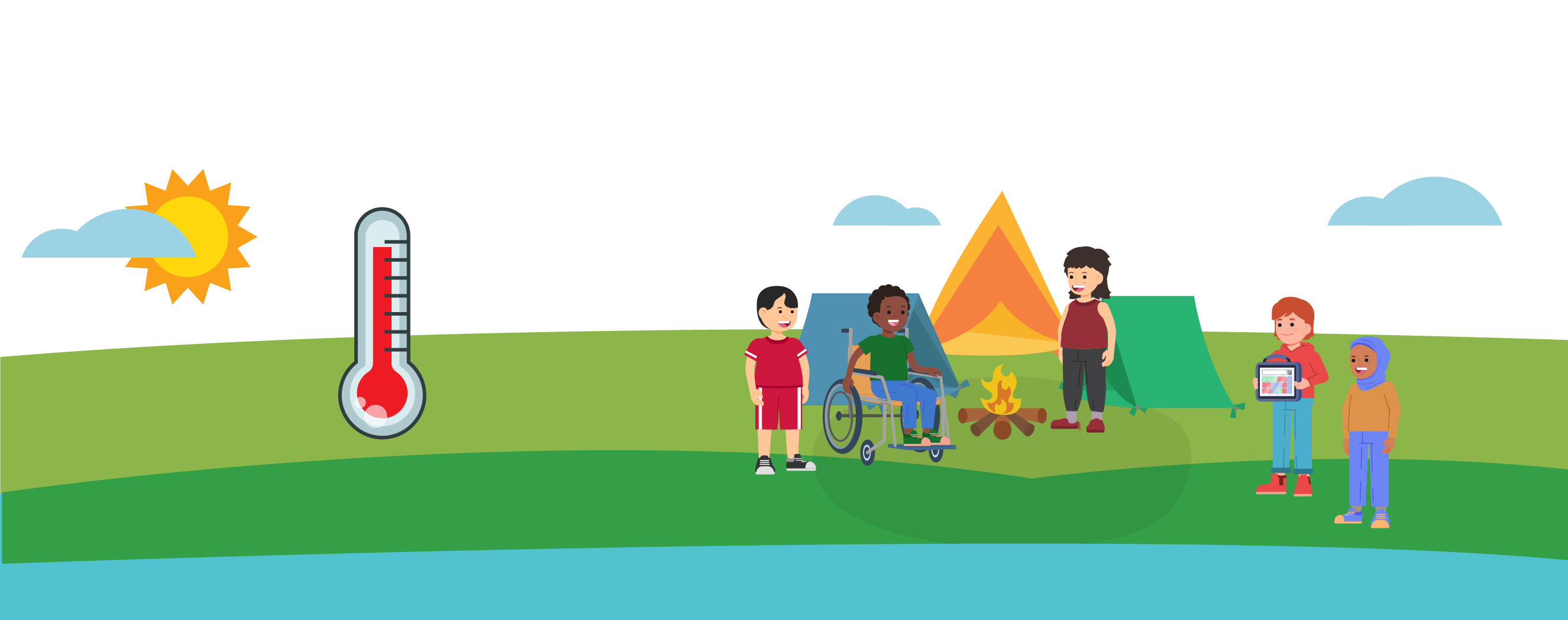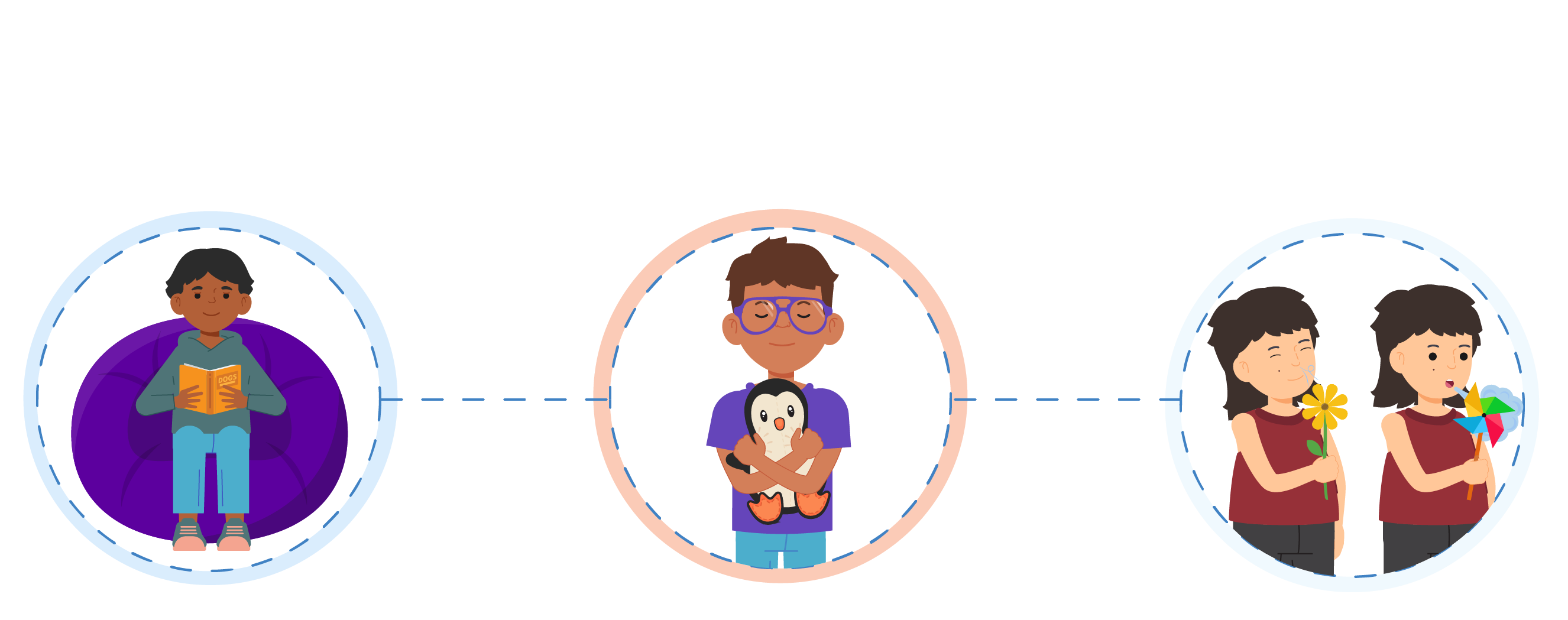June 2025 Newsletter | Supporting Sensory Sensitivities This Summer

Lea este artículo en español aquí.
Supporting Sensory Sensitivities This Summer
Summer brings sunshine, celebrations, and a wide range of sensory experiences. From fireworks and cookouts to vacations and summer camps, these events can be exciting—but also overwhelming—for students with sensory sensitivities. Understanding and managing sensory input is a vital part of daily life, and summer offers a great opportunity to explore strategies that support comfort, regulation, and participation.
Identifying Sensory Sensitivities Sensory sensitivities can be triggered by a variety of environmental factors. Imagine a social gathering outdoors on a hot June afternoon—what might that feel like for someone with sensory sensitivities? Here are some common sensory triggers to consider:
These factors can vary across settings—home, school, transportation, or public spaces. It’s helpful to ask: What hurts? What helps? Identifying these patterns allows students and caregivers to plan ahead and use tools that support regulation. |
Managing Sensitivities: Tools and Tips Whether at home or school, proactive strategies can make a big difference. Here are some ideas to try:
Planning ahead is key. Whether it’s a summer dentist appointment, a vacation, or a camp day, previewing the experience and practicing responses can reduce anxiety and increase success. |
Resources to Explore
Looking for ways to build sensory awareness into learning and play? Try these examples of STAR curriculum tools and activities:
Themes First! Art: Create a fireworks painting using straws to explore sound and motion through art in this Fireworks Straw Painting lesson (English: Instructions and Step-by-Step Guide | Español: Instructions and Step-by-Step Guide | Video).
For more sensory-management ideas:
Media Center users can explore the NEW Thematic Play content in Themes First! starting with our Back to School unit, which includes lessons designed to support play exploration in structured, sensory-engaging ways.
SOLER users have access to a wide range of lessons for self-awareness and self-management! Use the materials provided in these SOLER lessons to guide practice with self-monitoring and self-advocacy.


